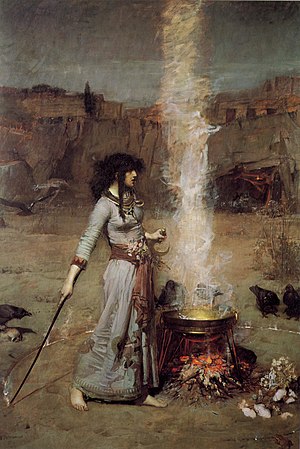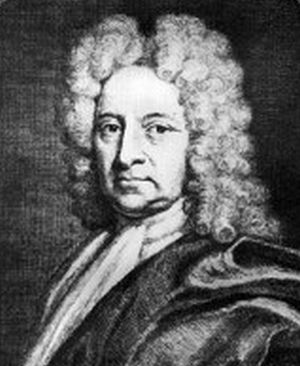 |
| English: A campaign against female genital mutilation – a road sign near , Uganda. עברית: .מאבק נגד מילת נשים - שלט הסברה בצד הכביש, ליד קפצ'ורווה, אוגנדה (Photo credit: Wikipedia) |
I usually post about writing on Thursdays but today’s a day of action on
a topic close to my heart, so please forgive my passion ruling my sense of duty
on this occasion. I suspect many of you won’t have heard about a growing
movement that aims to act in defence of women subject to violence. It takes
many forms: the fight against it, that is. There are many, many places on the
web where you can participate without a huge amount of effort.
I’ve never been a campaigner in physical protest, getting out on the
street, partaking in revolution or rebellion in a physical way: such protest is
too easily high-jacked by those with vested interests in promoting their own
violent and often extreme political views. Such protest can frequently do more
harm than good. I’m a writer. My skills lie in my ability to communicate through
the written word: it’s therefore more appropriate for me to work as a spreader
of the word, a reporter on the topic, an informer to the unaware.
So, this piece and my other internet activities constitute my activity,
my contribution to the debate. I hope to raise awareness of the issue and
perhaps persuade more people, especially men, to become engaged in the cause
against violence to women. At the end of this short piece I’ll provide links to
sites of interest where you can learn more, participate, and spread the word,
as you see fit.
Violence against women, against the female of our species of all ages, is
widespread, destructive, unjust and sometimes simply casual. There are
societies, political movements, religions, and criminal groups that treat women
as commodities; goods and chattels to be used, abused, traded and disposed of
without any regard to their humanity.
In certain parts of the world, girl babies are routinely killed because
the male line is the one that inherits, and dowries are required to be paid on
the marriage of a daughter. There are groups where the insanely cruel practice
of female genital mutilation, euphemistically labelled ‘female circumcision’,
is routinely carried out on young women approaching puberty. The rationale for
this horrific abuse, often controlled by the mothers of the victims, is that a
woman incapable of experiencing the real pleasures of sex is unlikely to stray
from the marital bed.
Within the more extreme versions of Islam, there are groups that continue
to stone to death a raped woman, accusing her of infidelity.
The Catholic church routinely turns a blind eye to the rape and assault of
both male and female children at the hands of its priests, whilst condemning
any girl subsequently found to be pregnant to suffer the torture of giving birth
the bastard so conceived.
Women are beaten daily by tribal husbands in Africa, Asia and the Middle
East simply because they fail to satisfy every demand of these men.
In the USA, a land that prides itself on freedom and modernity, the right
wing element of the Christian church is more concerned about the rights of an
unformed foetus than about those of its raped mother. I could go on, but the
list is disappointingly long.
The vast majority of violence against women is perpetrated by men; though
some is committed by other women, especially mothers. The greatest single cause
of this violence stems from ignorance. Education, of both men and women, is a
key route to the solution of the problem. As a consequence of ignorance, fear
plays a huge role also: we all know that bullies are, almost without exception,
cowards. A man who fears ridicule because a woman rejects him, who fears his
sexual prowess will be called into doubt if ‘his’ woman appears to be enamoured
of another man, who fears that a woman is actually more intelligent, rational
or simply ‘right’, will lash out if he has no social example to show him that
this is not acceptable or correct. And it is education that will most surely
deal with such ignorance.
Many will complain that changes in custom and tradition are needed to end
some of these practices. The argument that cultural difference is an
insurmountable difficulty will hold sway with many others. But these attitudes
hide a reluctance to face the realities. At base, we’re all aware that the ‘golden
rule’ is the only real arbiter of true justice in this world and that all deviations
are the result of domination by one group of bullies over another. But we have
moved on from the days when might was right. That the world is not uniformly
developing a rational and reasonable consciousness does not excuse the
toleration of practices that are, by any logical measure, brutal and unjust.
The fact that an action stems from custom or tradition does not automatically
confer legitimacy upon it. I challenge those who defend brutality on the
grounds of culture to apply the golden rule to these actions and examine them
in that light. The advantage of using this as a yardstick is that it (Do unto
others as you would have them do to you) lies outside the rules, laws and
traditions of any religion. The simple idea expressed by this rule is based on mutual
respect and informed self-interest. We would do well to make it a universal law
in all our dealings with each other and to outlaw all instances of ‘law’ that
fail to conform with it.
Finally, much violence against women is allowed simply because various
cultures, religious sects and traditions have debased women. This is almost
always the result of ignorance of the biological facts. Consider the old habit
of rulers disposing of wives who failed to give them a male heir: we now know
that the sex of a child is dependent on the input from the male. Blaming a
woman is ignorant and stupid.
The idea of male supremacy stems largely from the brute force that most
men are able to apply against women. The simple biological differences between
the genders makes men, in general terms, stronger than women. Of course there
are exceptions, but the general rule applies and is responsible for the
irrational attitude to supremacy that continues in many cultures. We no longer
live in a world where brute force is the prime factor in a group’s survival. Other
factors, many of them the domain of the female of the species, now apply to the
continued health of any society. Education will make this clear. Education will
restore the proper respect and sense of worth for women. But, and I understand
there’ll be much resistance to this idea, education must be free from the
interference of any religion for it to have the necessary effect. It’s clear
that much of the religious world was born out of traditional ignorance and to
allow it to have undue bearing on the education of our children is to
perpetuate the problems we need to solve. If parents want their children to be
raised in any given faith, let them do it outside of general institutions of
education.
So, to how you can work for the good of women in the world in general.
The following links lead to areas you can further develop. Thank you for
reading this lengthy piece. I welcome comment, as usual, of course. And if any
readers have additional sources of information, please add these to your
comments.
I could go on, but I don’t want to overload you. I’d rather you got
involved. Thank you for your patience.










































